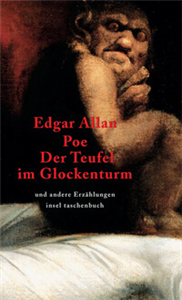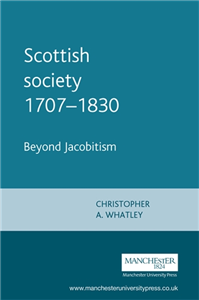Your Search Results
-
Promoted Content
-
Promoted Content
-
 Trusted Partner
January 1958
Trusted Partner
January 1958Bon Voyage
Zu- und Unfälle einer Reise nach Paris
by Hayes, Marrijane; Hayes, Joseph / Illustriert von Wirth, Kurt
-
 Trusted Partner
January 1983
Trusted Partner
January 1983Bon Voyage
Zu- und Unfälle einer Reise nach Paris. Roman
by Hayes, Marrijane; Hayes, Joseph
-
 Trusted Partner
2019
Trusted Partner
2019History of the Throw-Away Society
The drawback of consumption
by Wolfgang König
Sooner or later everything is thrown away. In the consumer society, however, usable and serviceable products that may be as good as new are also thrown away. Such behaviour is the result of a long-term process that has developed over a period of one-and-a-half centuries. The change was led by the USA, and the Federal Republic of Germany followed. It started at the turn of the last century with personal hygiene: articles such as toilet paper, sanitary towels, nappies and paper handkerchiefs. After the Second World War, a large number of other disposable articles were soon added, such as paper cups and plastic dishes, nylon stockings and pens, razor blades, beverage cans and much more besides. Wolfgang König shows how business and consumers have together made throwing things away perfectly normal – and discusses how the throwaway society may be overcome.
-
 Trusted Partner
Humanities & Social SciencesApril 2026
Trusted Partner
Humanities & Social SciencesApril 2026Elites in civil society
A comparative perspective
by Niklas Altermark, Malin Arvidson, Jayeon Lee, Roberto Scaramuzzino
Where civil society is often seen as a driving force for equality, this book addresses a challenging topic: civil society elites. Drawing on a comprehensive study of Italy, Poland, Sweden, and the UK, this ground-breaking research investigates the often-overlooked power structures within civil society. By combining elite studies with civil society research, the book uncovers how a distinct civil society elite emerges and how it interacts with leaders in politics and business. The findings reveal a fascinating paradox. While this elite may be a powerful engine for social change, its integration into wider power circles risks reproducing the very inequalities it seeks to dismantle. By exploring how this elite can become disconnected from its grassroots, the book provides essential insights into the future of civil society and its democratic promise.
-
 Trusted Partner
Humanities & Social SciencesJanuary 2018
Trusted Partner
Humanities & Social SciencesJanuary 2018Noble society
Five lives from twelfth-century Germany
by Jonathan R. Lyon
This book provides scholars and students alike with a set of texts that can deepen their understanding of the culture and society of the twelfth-century German kingdom. The sources translated here bring to life the activities of five noblemen and noblewomen from Rome to the Baltic coast and from the Rhine River to the Alpine valleys of Austria. To read these five sources together is to appreciate how interconnected political, military, economic, religious and spiritual interests could be for some of the leading members of medieval German society-and for the authors who wrote about them. Whether fighting for the emperor in Italy, bringing Christianity to pagans in what is today northern Poland, or founding, reforming and governing monastic communities in the heartland of the German kingdom, the subjects of these texts call attention to some of the many ways that noble life shaped the world of central medieval Europe.
-
 Trusted Partner
Humanities & Social SciencesJanuary 2013
Trusted Partner
Humanities & Social SciencesJanuary 2013Crime, Law and Society in the Later Middle Ages
by Anthony Musson, Edward Powell
This book provides an accessible collection of translated legal sources through which the exploits of criminals and developments in the English criminal justice system (c.1215-1485) can be studied. Drawing on the wealth of archival material and an array of contemporary literary texts, it guides readers towards an understanding of prevailing notions of law and justice and expectations of the law and legal institutions. Tensions are shown emerging between theoretical ideals of justice and the practical realities of administering the law during an era profoundly affected by periodic bouts of war, political in-fighting, social dislocation and economic disaster. Introductions and notes provide both the specific and wider legal, social and political contexts in addition to offering an overview of the existing secondary literature and historiographical trends. This collection affords a valuable insight into the character of medieval governance as well as revealing the complex nexus of interests, attitudes and relationships prevailing in society during the later Middle Ages.
-
Business, Economics & LawApril 1905
The Acquisitive Society
by R.H. Tawney
This 1926 survey, written by a distinguished social and economic historian, examines the role of religion in the rise of capitalism. Arguing that material acquisitiveness is morally wrong and a corrupting social influence, the author draws upon his profound knowledge of labor and politics to show how concentrated wealth distorts economic policies. Colorful but credible, this study offers a timeless vision of alternative means toward a just economic, social, and intellectual order.
-
 Trusted Partner
August 2008
Trusted Partner
August 2008Sämtliche Erzählungen in vier Bänden
Band 1: Der Teufel im Glockenturm
by Edgar Allan Poe, Barbara Cramer-Nauhaus, Erika Gröger
Erst das 20. Jahrhundert hat so recht die Visionen des großen amerikanischen Erzählers Edgar Allan Poe wahr- und ernstgenommen. Dabei wollte Poe mit seinen unheimlichen Erzählungen, den Nachtstücken, dem Grauen, den Alpträumen, den Nervenkrisen, der Flucht ins Jenseits des Grabes, mit dem Überwirklichen und Kriminellen, nicht nur die zynische Grausamkeit und das menschliche Verbrechen messerscharf analysieren, sondern auch seiner inhumanen Mitwelt einen düsteren Groteskspiegel vorhalten. Die Erzählungen sind hier chronologisch nach der Erstveröffentlichung angeordnet. Inhaltsverzeichnis Deutsch Aus dem Inhalt: Ein Traum / Der Folio-Klub / Metzengerstein / Der Duc de l Omelette / Eine Geschichte aus Jerusalem / Ein schwerwiegender Verlust / Der verlorene Atem / Der fehlgeschlagene Handel / Bon-Bon / Vier Tiere in einem / Die Flaschenpost / Die Verabredung / Der Löwe des Tages / Schatten. Eine Parabel / Schweigen. Eine Fabel / Berenic‰ / Morella / König Pest / Autographen / Mystifikation / Ligeia / Wie man einen 'Blackwood'-Artikel schreibt / Der Teufel im Glockenturm / Der Mann, von dem nichts übrigblieb / Der Untergang des Hauses Usher / Das Gespräch zwischen Eiros und Charmion / William Wilson / Warum der kleine Franzose die Hand in der Schlinge trägt / Instinkt contra Verstand. Eine schwarze Katze / Der Geschäftsmann / Cabs / Der Mann in der Menge / Edgar Allan Poe, Sämtliche Erzählungen. Alphabetische Inhaltübersicht der vier Einzelbände / Zu dieser Ausgabe Autorenporträt Edgar Allan Poe (1809-49) gilt als bedeutendster Vertreter der amerikanischen Romantik und als Urvater der Kriminal- und phantastischen Literatur. Seine Kriminal- und Gruselgeschichten sind, ob als Gedicht oder Erzählung, in besonderem Maße von seinem analytischen Scharfsinn und seinem Hang zum Makaberen geprägt und haben einen großen Einfluss auch auf die europäische Literatur ausgeübt.
-
 Trusted Partner
Humanities & Social SciencesNovember 2020
Trusted Partner
Humanities & Social SciencesNovember 2020British civic society at the end of empire
by Anna Bocking-Welch, Andrew Thompson
-
 Trusted Partner
Humanities & Social SciencesSeptember 2021
Trusted Partner
Humanities & Social SciencesSeptember 2021Counter-terrorism and civil society
by Scott N. Romaniuk, Emeka Thaddues Njoku
-
 Trusted Partner
Humanities & Social SciencesOctober 2002
Trusted Partner
Humanities & Social SciencesOctober 2002American society today
by Edward Ashbee, Bill Jones
American society today provides a balanced introduction to the defining features of contemporary American society. Includes the ways in which the US can be considered 'exceptional' - the character of the 'American dream', the role of ethnicity and race, and the differences between the regions. Considers in depth a number of contemporary debates including the claim that the US economy has lost its capacity to generate wealth and stimulate mobility, that there has been a process of civic disengagement as voluntary organisations have lost members, and that the traditional family is in decline. Includes a thorough investigation of the effects of the terrorist attacks of September 11 and their aftermath. Looks at the arguments put forward by those who assert that a common American identity has given way to a multitude of conflicting identities structured around factors such as race, ethnicity, gender and sexuality. ;
-
 Trusted Partner
Humanities & Social SciencesMarch 2017
Trusted Partner
Humanities & Social SciencesMarch 2017Science and society in southern Africa
by Saul Dubow
This collection, dealing with case studies drawn from South Africa, Zimbabwe, Mozambique and Mauritius, examines the relationship between scientific claims and practices, and the exercise of colonial power. It challenges conventional views that portray science as a detached mode of reasoning with the capacity to confer benefits in a more or less even-handed manner. That science has the potential to further the collective good is not fundamentally at issue, but science can also be seen as complicit in processes of colonial domination. Not only did science assist in bolstering aspects of colonial power and exploitation, it also possessed a significant ideological component: it offered a means of legitimating colonial authority by counter-poising Western rationality to native superstition and it served to enhance the self-image of colonial or settler elites in important respects. This innovative volume ranges broadly through topics such as statistics, medicine, eugenics, agriculture, entomology and botany.
-
 Trusted Partner
Trusted Partner
-
 Trusted Partner
Trusted Partner
-
 Trusted Partner
March 1994
Trusted Partner
March 1994Kriegstagebuch
September 1939 - Januar 1941
by Beauvoir, Simone de / Übersetzt von Klein, Judith; Herausgegeben von Le Bon de Beauvoir, Sylvie
-
 Trusted Partner
Humanities & Social SciencesJune 2011
Trusted Partner
Humanities & Social SciencesJune 2011Democratic Participation and Civil Society in the European Union
by Dawid Friedrich, Emil Kirchner, Thomas Christiansen
Can the participation of civil society organisations democratise policy making in the European Union? This book challenges the widespread optimism about civil society participation in European governance and offers a nuanced and realistic evaluation of its democratic potential. Friedrich argues that the participation of these groups is only of democratic value if participatory patterns are democratised through appropriate institutional means. This book systematically brings together insights from normative democratic theory with an empirical evaluation of concrete policy-processes. It demonstrates that the participation of civil society organisation cannot be conceived as a panacea for the European Union's democratic deficit, because the participatory pattern of EU policy-making violates the key democratic value of political equality. This book will be of interest to all of those concerned about the future of European democracy, those studying and teaching European politics, the European Union, international relations and democratic theory. ;
-
 Trusted Partner
Economic historyJuly 2000
Trusted Partner
Economic historyJuly 2000Scottish society 1707–1830
Beyond Jacobitism, t
by Christopher A. Whatley
Scottish Society, 1707-1830 challenges much conventional wisdom and provides readers with many new insights into Scottish social and economic history.. Argues that the Union of 1707 was vital for Scottish success, but in ways which have hitherto been overlooked.. Contests received wisdom on issues such as the role of the Kirk and other agencies for inculcating order, and argues that the eighteenth and early nineteenth centuries in Scotland were years of upheaval and deep social conflict in both the Highlands and Lowlands, where commercialism and later the market economy revolutionised social relationships.. The period surrounding the Radical War in 1820 is identified as a watershed in Scottish history, almost making but also breaking the Scottish working class.. Not only on an exhaustive reading of secondary material but also incorporates a wealth of new evidence from previously little-used or unused primary sources.
-
 Trusted Partner
Literature & Literary StudiesJanuary 2014
Trusted Partner
Literature & Literary StudiesJanuary 2014Court and civic society in the Burgundian Low Countries c.1420–1530
by Andrew Brown, Graeme Small
This volume is the first ever attempt to unite and translate some of the key texts which informed Johan Huizinga's famous study of the Burgundian court, The Waning of the Middle Ages, a work which has never gone out of print. It combines these texts with sources that Huizinga did not consider, those that illuminate the wider civic world that the Burgundian court inhabited and the dynamic interaction between court and city. Through these sources, and an introduction offering new perspectives on recent historiography, the book tests whether Huizinga's controversial vision of the period still stands. Covering subjects including ceremonial events, such as the spectacles and gargantuan banquets that made the Burgundian dukes the talk of Europe, the workings of the court, and jousting, archery and rhetoric competitions, the book will appeal to students of late medieval and early modern Europe and to those with wider interests in court culture, ritual and ceremony.






























